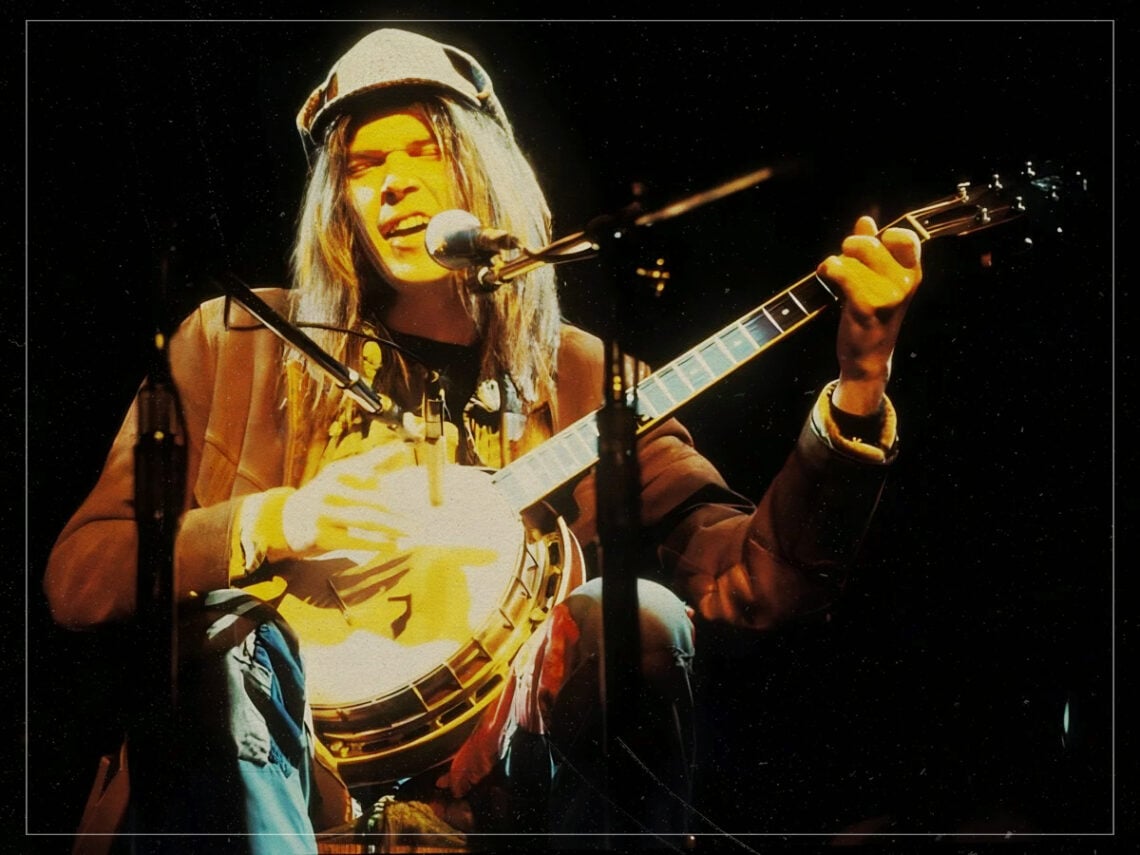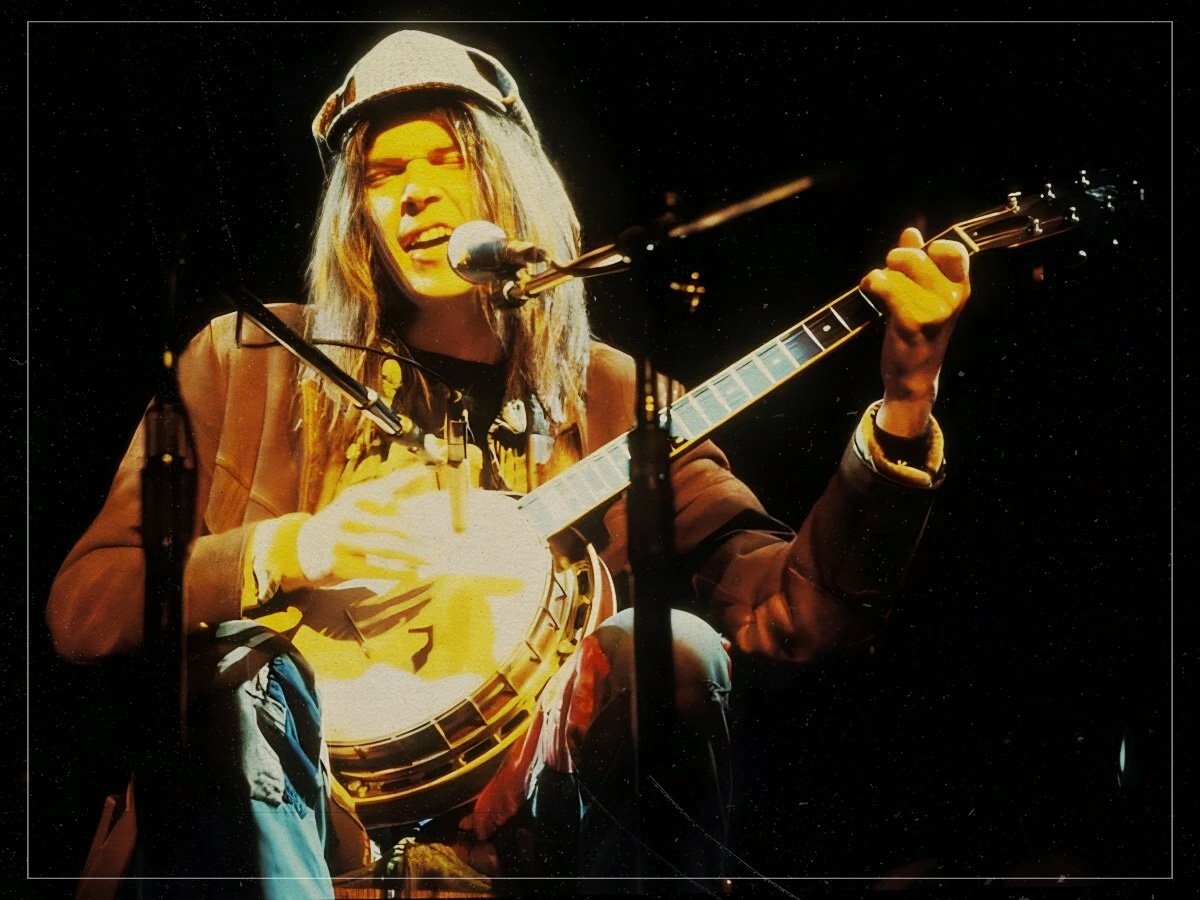
(Credits: Far Out / Alamy)
Thu 9 October 2025 23:14, UK
The more superficial aspects of the music industry didn’t always mean much to Neil Young.
Even if he was one of the most celebrated songwriters of his time, he would have been just as happy playing to a handful of people in a bar as long as he was playing the music that he loved. It was all about community whenever he picked up his guitar, but when it started to become a lot more commercialised, he knew that he didn’t want to stay too long at the party.
Then again, it’s hard for any artist to find a balance between what the people want and what they want. It’s called the music BUSINESS for a reason, and while the customer might always be right, anyone looking to hold onto their artistry is going to have to face a harsh reality when they have to make tunes that they know will work well on the charts instead of the ones that they want.
But rarely did you find many people in the industry who gave less of a shit than Young did. He never once apologised for making music that some would find difficult, and even if there were a handful of times when he started working on a record more in line with what people expected, there was always going to be reactionary albums like Everybody’s Rockin’ and Landing on Water to throw a wrench into things.
It’s not like Young was ever going to dial things back, either. ‘This Note’s For You’ is easily one of the funniest songs he ever made regarding how commercial things were getting, so he wasn’t about to dial it back when it came to the more unsavoury pieces of his catalogue. When working in a band, though, it’s a lot harder for people like Young to learn the rule of compromising.
Young could be extremely fickle in every aspect of his career, but it wasn’t like Crosby, Stills, and Nash didn’t have their hearts in the right place when having him join. His guitar work and edgy material gave the band the edge they needed, but as they descended upon Woodstock to make musical history, Young couldn’t help but look around and see how much things had begun to change.
The idea of peace and love was what everyone saw when looking back on the festival, but Young felt that it was a bad omen seeing all of the cameras everywhere, saying, “That was a turning point. Music was becoming media, and music was turning into an industry instead of a direct communication between musicians and the audience. In my view, cameras had no place on stage.”
While anyone could claim that Young’s agitation over the cameras clashed with that “peace and love” belief, that’s kind of a bad faith interpretation of things. Young was trying to keep the festival focused on the music, but since the show served as a socio-political statement in many ways, it was bound to be a bit more complicated when he saw people trying to turn it into a manufactured event.
The beauty of something like Woodstock was that it captured a place in time, but Young’s problems with the festival is a good lesson to anyone that tries to recreate that kind of energy. There’s nothing wrong with a day of peace and love, but there’s a fine line between going against the establishment and accidentally turning into them.
Related Topics
